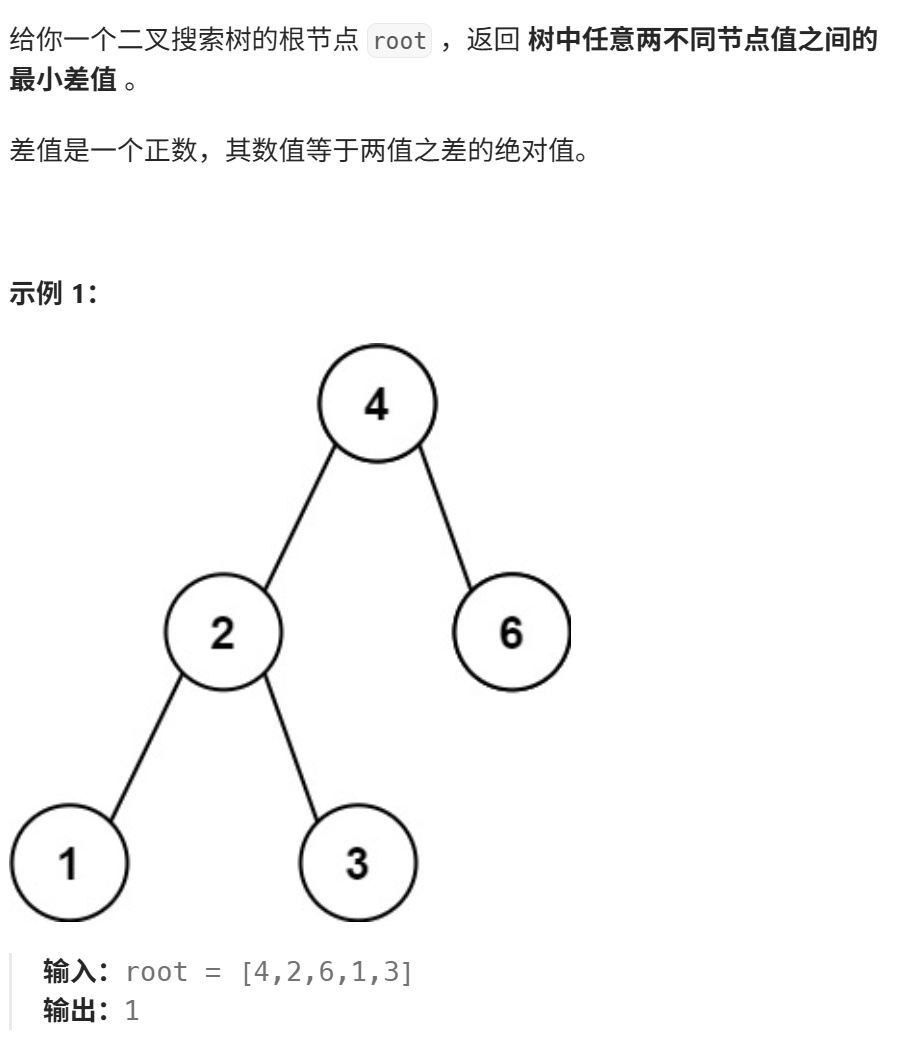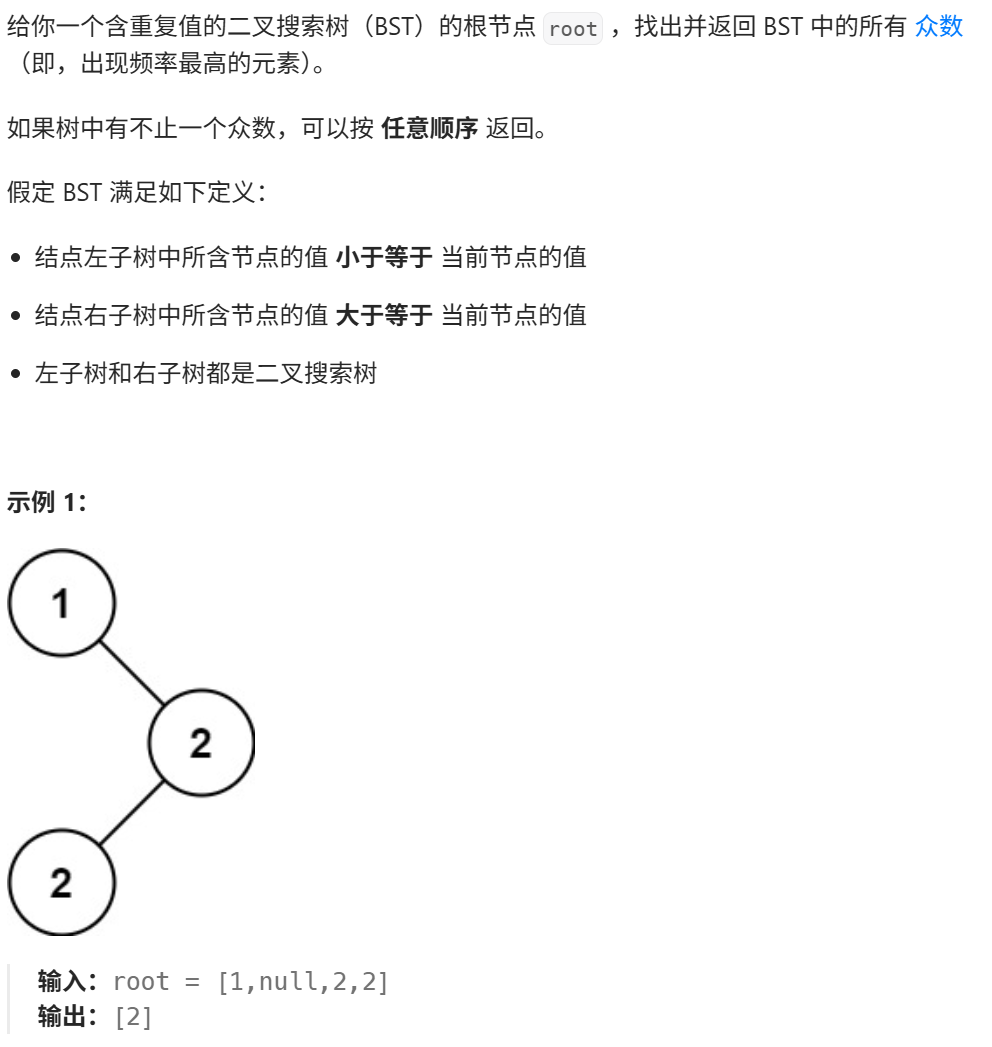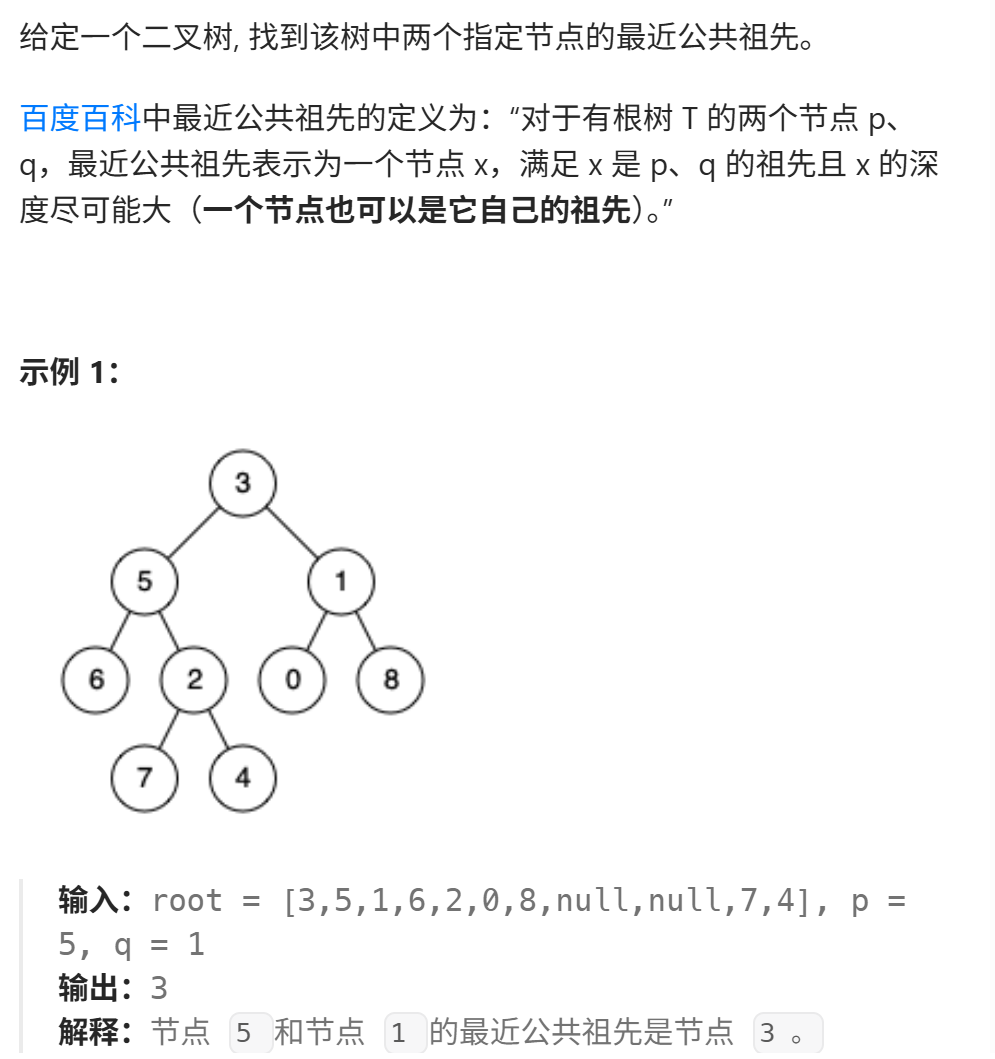算法day16-二叉树(6)
目录
- 530 二叉搜索树的最小绝对差
- 201 二叉搜索树中的众数
- 236 二叉树的最近公共祖先(⭐⭐⭐)
一、二叉搜索树的最小绝对差

思路:先按中序遍历输出有序的数组,然后看相邻的元素的差哪个最小。
class Solution { int res = Integer.MAX_VALUE; Integer prev = null; public int getMinimumDifference(TreeNode root) { inorder(root); //中序遍历起点 return res; } public void inorder(TreeNode root){ if(root == null){ return; } inorder(root.left); if(prev != null){ res = Math.min(root.val - prev, res); } prev = root.val; inorder(root.right); } }
二、二叉搜索树中的众数
https://leetcode.cn/problems/find-mode-in-binary-search-tree/description/?envType=problem-list-v2&envId=8At1GmaZ

思路:按照中序遍历去遍历这棵树。在【中】的逻辑中,先更新该节点出现的次数,然后比较出现次数是否比之前出现过的最多的节点都要多,若是的话则清空res,然后把该节点放进去,更新max的值;若出现的次数与最大的相同,则继续加入到res中。
class Solution { Map<Integer, Integer> map; int max; List<Integer> res; public int[] findMode(TreeNode root) { map = new HashMap<>(); res = new ArrayList<>(); max = 0; inorder(root); return res.stream().mapToInt(Integer::intValue).toArray(); } public void inorder(TreeNode root){ if(root == null){ return; } inorder(root.left); //----左------ int count = map.getOrDefault(root.val,0)+1; //先统计这个节点出现的次数 map.put(root.val, count); if(count > max){ res.clear(); res.add(root.val); max = count; }else if(count == max){ res.add(root.val); } inorder(root.right); } }
三、二叉树的最近公共祖先
https://leetcode.cn/problems/lowest-common-ancestor-of-a-binary-tree/description/?envType=problem-list-v2&envId=8At1GmaZ

思路:该题的条件是每个节点的数值都不相同,且一定存在p和q。这里回溯的逻辑需要用后序遍历的方式去做(因为是想从下往上处理)。情况1:左和右都不为空,则中就为最近公共祖先。情况2:根就为p或q,那根就为最近公共祖先。
class Solution { public TreeNode lowestCommonAncestor(TreeNode root, TreeNode p, TreeNode q) { if(root == null){ return null; } if(root == p || root == q){ //如果碰到了这两个节点,则告知上层 return root; } TreeNode leftNode = lowestCommonAncestor(root.left,p,q); //告诉我们左子树有没有公共祖先 TreeNode rightNode = lowestCommonAncestor(root.right,p,q); if(leftNode != null && rightNode != null){ return root; } if(leftNode == null && rightNode != null){ return rightNode; }else if(leftNode != null && rightNode == null){ return leftNode; }else{ return null; } } }



 浙公网安备 33010602011771号
浙公网安备 33010602011771号